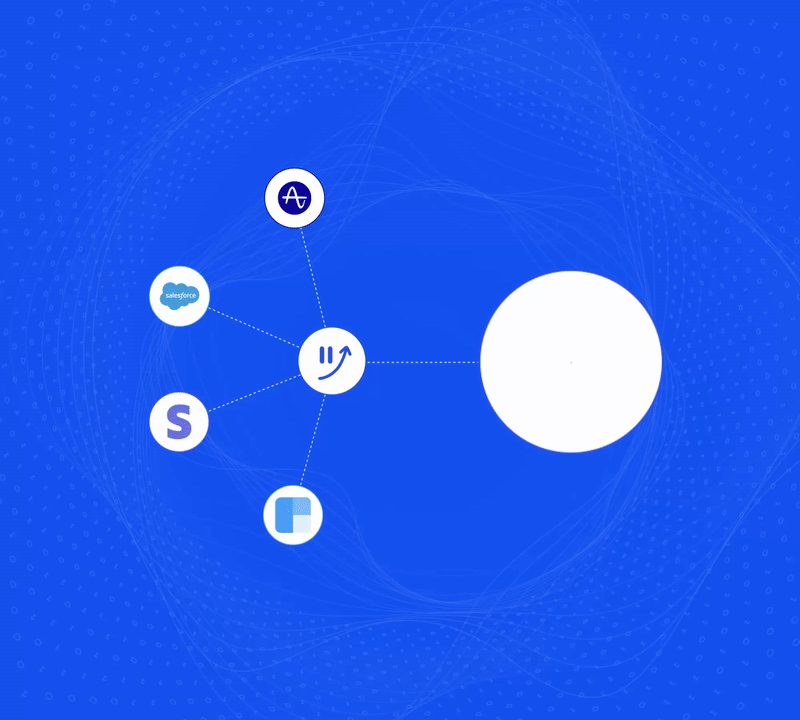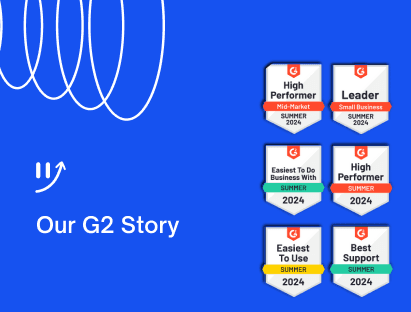Lead Scoring & Google's New Spam Rules: Email Campaign Precision
Lead Scoring & Google's New Spam Rules: Email Campaign Precision
Lead Scoring & Google's New Spam Rules: Email Campaign Precision
Learn how advanced lead scoring techniques can help your B2B email campaigns stay compliant with Google's new spam policies.
Learn how advanced lead scoring techniques can help your B2B email campaigns stay compliant with Google's new spam policies.
Learn how advanced lead scoring techniques can help your B2B email campaigns stay compliant with Google's new spam policies.



Introduction: A New Chapter in Email Marketing
For B2B companies, particularly in the SaaS sector, Google's upcoming 2024 spam policies are not just regulatory hurdles but opportunities for strategic refinement. At the forefront of this evolution is the concept of lead scoring for email campaigns—a technique that promises to redefine how businesses target and engage their audience.
The Impetus: Google’s Stringent Spam Policies
The new regulations by Google focus on:
Mandatory Email Authentication: Validating the legitimacy of email senders.
Easier Unsubscribe Options: Empowering recipients with hassle-free opt-out mechanisms.
Strict Control on Spam Rates: Limiting the volume of spammy content in inboxes.
Read more about the upcoming Google spam prevention policies covered by CNBC.
In this climate, B2B marketers—be it CROs, VPs of Sales, or heads of Marketing—need to adapt their strategies to be more targeted and compliant.
Lead Scoring: The Gateway to Targeted Email Marketing
Lead scoring, a methodology that assigns value to each lead based on their likelihood to convert, emerges as a key tool in navigating these policy changes effectively.
1. Enhancing Email Relevance and Compliance
Effective lead scoring ensures that your emails are sent to the most interested and engaged segments of your audience. This not only aligns with Google's emphasis on reducing spam but also increases the relevance and effectiveness of your campaigns.
2. Prioritizing High-Value Leads
Lead scoring enables you to identify and prioritize leads that are more likely to engage and convert. This focused approach ensures better use of resources and aligns your email strategies with the desired business outcomes.
3. Personalizing the Customer Journey
By understanding where a lead stands in the customer journey, you can tailor your email content to meet their specific needs and preferences, enhancing the personalization and effectiveness of your campaigns.
Implementing Lead Scoring in Your Email Strategy
Data Integration and Analysis: Collect and analyze data from various touchpoints—be it website interactions, past purchase behavior, or engagement with previous emails.
Developing a Scoring Model: Create a model that assigns scores to leads based on their actions and engagement level. Tools like Amplitude or Mixpanel can offer valuable insights for this process.
Segmentation Based on Scores: Segment your email list based on lead scores, ensuring that each campaign is targeted towards the right audience.
Tailoring Content and Timing: Customize your email campaigns based on the segments' characteristics and preferences, optimizing the timing and messaging for maximum impact.
Toplyne: Elevating Your Email Campaigns with Predictive Lead Scoring

Toplyne, entrusted by industry leaders like RocketReach, Vercel, and Notion, offers an innovative approach to lead scoring for email campaigns. With its advanced analytics and integration capabilities, Toplyne enables B2B companies to:
Strategically Score and Segment Leads: Utilize advanced algorithms to score leads accurately, ensuring that your email campaigns are targeted to the most promising prospects.
Seamlessly Integrate Data: Toplyne's ability to integrate with your existing CRM and analytics tools, like data warehouses, Pendo, or Amplitude, ensures a holistic view of your leads.
Optimize Campaigns for Compliance and Engagement: Align your email strategies with Google’s new regulations, while also enhancing the overall engagement and conversion rates.
Conclusion: Leading the Way in Data-Driven Email Marketing
As Google’s new email regulations reshape the marketing landscape, lead scoring becomes an indispensable tool for B2B companies looking to optimize their email campaigns. By leveraging the capabilities of platforms like Toplyne, businesses can not only ensure compliance with these new rules but also achieve a higher level of engagement and efficiency in their email marketing efforts. Embrace the power of lead scoring to unlock new possibilities in your B2B email strategies.
Need help with lead scoring for email campaigns in the light of the spam prevention policies? See Toplyne in action.
Introduction: A New Chapter in Email Marketing
For B2B companies, particularly in the SaaS sector, Google's upcoming 2024 spam policies are not just regulatory hurdles but opportunities for strategic refinement. At the forefront of this evolution is the concept of lead scoring for email campaigns—a technique that promises to redefine how businesses target and engage their audience.
The Impetus: Google’s Stringent Spam Policies
The new regulations by Google focus on:
Mandatory Email Authentication: Validating the legitimacy of email senders.
Easier Unsubscribe Options: Empowering recipients with hassle-free opt-out mechanisms.
Strict Control on Spam Rates: Limiting the volume of spammy content in inboxes.
Read more about the upcoming Google spam prevention policies covered by CNBC.
In this climate, B2B marketers—be it CROs, VPs of Sales, or heads of Marketing—need to adapt their strategies to be more targeted and compliant.
Lead Scoring: The Gateway to Targeted Email Marketing
Lead scoring, a methodology that assigns value to each lead based on their likelihood to convert, emerges as a key tool in navigating these policy changes effectively.
1. Enhancing Email Relevance and Compliance
Effective lead scoring ensures that your emails are sent to the most interested and engaged segments of your audience. This not only aligns with Google's emphasis on reducing spam but also increases the relevance and effectiveness of your campaigns.
2. Prioritizing High-Value Leads
Lead scoring enables you to identify and prioritize leads that are more likely to engage and convert. This focused approach ensures better use of resources and aligns your email strategies with the desired business outcomes.
3. Personalizing the Customer Journey
By understanding where a lead stands in the customer journey, you can tailor your email content to meet their specific needs and preferences, enhancing the personalization and effectiveness of your campaigns.
Implementing Lead Scoring in Your Email Strategy
Data Integration and Analysis: Collect and analyze data from various touchpoints—be it website interactions, past purchase behavior, or engagement with previous emails.
Developing a Scoring Model: Create a model that assigns scores to leads based on their actions and engagement level. Tools like Amplitude or Mixpanel can offer valuable insights for this process.
Segmentation Based on Scores: Segment your email list based on lead scores, ensuring that each campaign is targeted towards the right audience.
Tailoring Content and Timing: Customize your email campaigns based on the segments' characteristics and preferences, optimizing the timing and messaging for maximum impact.
Toplyne: Elevating Your Email Campaigns with Predictive Lead Scoring

Toplyne, entrusted by industry leaders like RocketReach, Vercel, and Notion, offers an innovative approach to lead scoring for email campaigns. With its advanced analytics and integration capabilities, Toplyne enables B2B companies to:
Strategically Score and Segment Leads: Utilize advanced algorithms to score leads accurately, ensuring that your email campaigns are targeted to the most promising prospects.
Seamlessly Integrate Data: Toplyne's ability to integrate with your existing CRM and analytics tools, like data warehouses, Pendo, or Amplitude, ensures a holistic view of your leads.
Optimize Campaigns for Compliance and Engagement: Align your email strategies with Google’s new regulations, while also enhancing the overall engagement and conversion rates.
Conclusion: Leading the Way in Data-Driven Email Marketing
As Google’s new email regulations reshape the marketing landscape, lead scoring becomes an indispensable tool for B2B companies looking to optimize their email campaigns. By leveraging the capabilities of platforms like Toplyne, businesses can not only ensure compliance with these new rules but also achieve a higher level of engagement and efficiency in their email marketing efforts. Embrace the power of lead scoring to unlock new possibilities in your B2B email strategies.
Need help with lead scoring for email campaigns in the light of the spam prevention policies? See Toplyne in action.
Related Articles




Behavioral Retargeting: A Game-Changer in the Cookieless Era
Unlock the power of behavioral retargeting for the cookieless future! Learn how it personalizes ads & boosts conversions. #behavioralretargeting




All of Toplyne's 40+ Badges in the G2 Spring Reports
Our customers awarded us 40+ badges in G2's Summer Report 2024.




Unlocking the Full Potential of Google PMax Campaigns: Mastering Audience Selection to Double Your ROAS
Copyright © Toplyne Labs PTE Ltd. 2024
Copyright © Toplyne Labs PTE Ltd. 2024
Copyright © Toplyne Labs PTE Ltd. 2024
Copyright © Toplyne Labs PTE Ltd. 2024